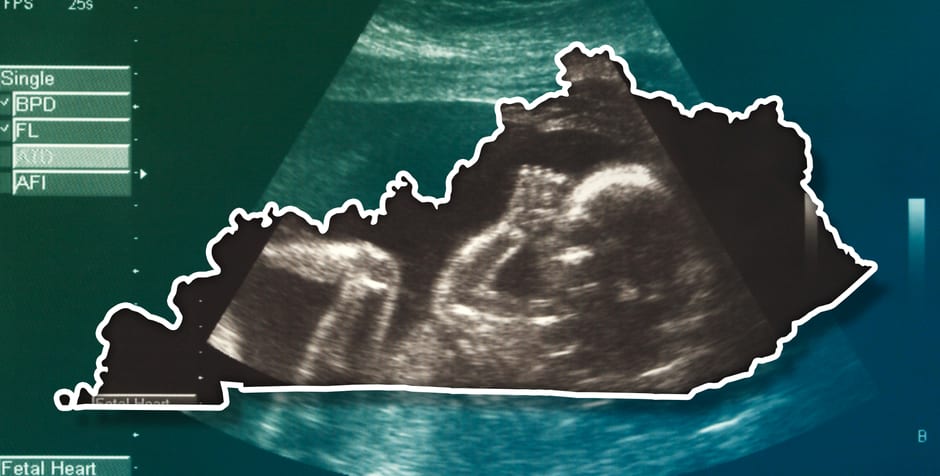Supreme Court Lets Pro-Life Kentucky AG Defend Law Banning Dismemberment Abortions
In a victory for the pro-life state attorney general in Kentucky, the U.S. Supreme Court on March 3rd ruled in Cameron v. EMW Women’s Surgical Center that the state AG should be permitted to defend a contested state abortion law. While the case involves a challenge to an abortion law in Kentucky, the Court addressed only a procedural question regarding party intervention – i.e., whether someone who is not a party to a case can join the case. The Court held 8-1 that the lower court – the U.S. Court of Appeals for the Sixth Circuit – erred by denying the Kentucky AG’s motion to intervene to defend (in a petition for rehearing en banc) the state’s ban on dismemberment abortions.
The case involved something of a game of political musical chairs. When the EMW abortion facility first challenged the Kentucky statute, the governor was pro-life (Matt Bevin) and the attorney general was pro-abortion (Andy Beshear). So the executive branch (the governor’s team) defended the law, while AG Beshear got himself dismissed from the case. But then, after EMW won in the lower court and the state appealed, there was a state election, and the two branches traded places on abortion. Pro-abortion Beshear won the governorship, placing the executive branch in pro-abortion hands, while pro-life Daniel Cameron, a strong defender of children in the womb was elected as the new AG, placing that office in pro-life hands. When a divided panel of the Sixth Circuit rejected the state’s appeal, Gov. Beshear’s new health secretary announced that the state would not seek either rehearing in the court of appeals or Supreme Court review. New AG Cameron then immediately requested permission to intervene to defend the law, since the Governor’s team was abandoning the defense. But the same divided Sixth Circuit panel said “no” to Cameron’s proposed intervention, which meant the dismemberment abortion ban would fail for want of any further defense.
Kentucky AG Cameron then sought Supreme Court review, and the high Court agreed to review the intervention question. The majority opinion, written by Justice Alito, agreed with AG Cameron that he should have been permitted to intervene to defend the abortion statute. Noting “[t]he importance of ensuring that States have a fair opportunity to defend their laws in federal court,” the Court ruled that “[t]he Sixth Circuit panel failed to account for the strength of the Kentucky attorney general’s interest in taking up the defense of [the dismemberment abortion ban] when the secretary for Health and Family Services elected to acquiesce.” The Court further noted that “the attorney general sought to intervene ‘as soon as it became clear’ that the Commonwealth’s interests ‘would no longer be protected’ by the parties in the case,” and therefore Cameron’s request was not untimely. Finally, the Court ruled that EMW et al. (“respondents”) did not have a right to have Gov. Beshear’s pro-abortion position defeat the state’s defense of the law:
Respondents contend that Governor Beshear had a “history of refusing to defend abortion restrictions” and that they therefore reasonably thought that the secretary, who was appointed by the Governor, would not pursue “extraordinary forms of relief if they prevailed in their appeal.” Ibid.
The loss of this sort of claimed expectation does not amount to unfair prejudice . . . . Respondents may have hoped that the new Governor would appoint a secretary who would give up the defense of [the dismemberment law], but they had no legally cognizable expectation that the secretary he chose or the newly elected attorney general would do so before all available forms of review had been exhausted.
Six Justices joined the majority opinion. Justices Kagan and Breyer, normally reliable votes against any pro-life law, nevertheless concurred in the judgment on the procedural issue, while offering a somewhat different rationale from that of the majority. Justice Sotomayor dissented. Notably, all nine Justices rejected EMW’s argument that there was a jurisdictional bar to Cameron’s intervention.
Kudos to the pro-life Kentucky Attorney General for aggressively taking up the defense of this state law forbidding a lethal and barbaric abortion procedure! His victory is good news for pro-life efforts in that state, and he can now pursue that defense in the lower court (and if need be, with a request for a return trip to the Supreme Court). And the lopsided nature of his Supreme Court victory is an encouraging sign that strong legal arguments can still win, despite concerns about an “abortion distortion factor.”
